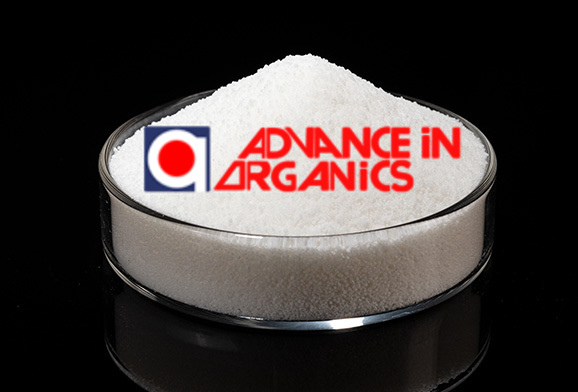Emulsifier
Emulsifier Manufacturer and Supplier
The speedy development in the emulsifier market in India is due to escalating demands from the food processing, cosmetics, pharmaceuticals, and personal care sectors. The expanding preference of health conscious consumers for processed food together with a need for enhanced texture and durability has been key to the growth of emulsifiers. It is estimated that the market growth will follow urbanization and evolving consumer ways of life.
Competitive Landscape:
- Advance in organics has become synonymous with expertise in food emulsifiers, serving the segments of bakery, dairy, and confectionery. Advance in organics concentrates on providing sustainable emulsifiers for food processing, responding to a global demand for both plant based and environmentally friendly products.
- Serving the Indian market using its worldwide presence, Advance in organics introduces its large choice of emulsifiers for bakeries, dairy processing, and meat processing. Levering sustainable emulsifiers for food processing, catering to the global demand for plant-based and environmentally-friendly products.
- Advance in organics has a wide range of emulsifiers for the bakery, dairy, and meat processing industries, leveraging its global presence to supply the Indian market.
Quality Standards and Certifications for Emulsifier Manufacturing in India
It is essential for emulsifier manufacture in India to follow tough quality regulations in order to ensure the safety and performance of the product, especially with regard to food and pharmaceutical applications. Key certifications include:
- ISO 22000: Certification of a food safety management system to confirm that emulsifiers comply with worldwide food safety standards.
- FSSAI (Food Safety and Standards Authority of India): Food processing emulsifiers require compliance with the FSSAI regulations.
- HACCP (Hazard Analysis Critical Control Points): A system for managing safety that applies to the production of emulsifiers.
- GMP (Good Manufacturing Practices): In the drug manufacturing and beauty product industries, preserving product integrity and safety is highly dependent on.
Standard provide assurance that emulsifiers are safe, of acceptable quality, and comply with current regulatory standards.
Sustainability and Environmental Impact
The generation of emulsifiers raises environmental questions, particularly with respect to sourcing their raw materials and energy needs. Yet, producers are taking sustainable actions to reduce their environmental footprint. To illustrate, Palsgaard has made a commitment to carbon-neutral production, in contrast to other firms that are concentrating on plant-based and renewable raw materials.
Key sustainable practices include:
- Sourcing sustainable raw materials: A variety of emulsifier manufacturers are moving away from using synthetic chemicals and animal derivatives and toward plant-based oils and fats.
- Recycling and waste reduction: Manufacturers are adding processes that lessen waste and recycle both water and energy throughout the production stage.
- Sustainable packaging: A number of companies are concentrating on sustainable packaging materials to more greatly reduce their carbon footprint.
Case Studies and Applications
Food Processing: We need emulsifiers to preserve texture as time passes and to improve the shelf life of processed food items. In the bakery business, products like lecithin act as emulsifiers to better dough management and boost bread softness.
Detergents: Emulsifiers found in the detergent market break oil and fat molecules in water, increasing the cleaning efficiency of detergents. In the area of liquid laundry detergents, a common use for emulsifiers is to properly break down oils.
Cosmetics: For the sake of personal care products, emulsifiers work to stabilize creams as well as lotions. Their purpose is to hold water and oils in harmony to furnish smoother textures and maintain product consistency throughout extended times.
Comparative Analysis
The plethora of emulsifiers includes a variety of kinds, all of which bring different advantages and challenges. The usual types encompass lecithin, mono and diglycerides, and polysorbates.
- Lecithin (from soy or sunflower): The food industry widely makes use of natural emulsifier lecithin. The benefit is that it is plant derived and without allergens. Still, it may fail to supply the same durability as artificial options.
- Mono and diglycerides: These are artificial emulsifiers meant for the use in food and cosmetics. They supply great stability while being inexpensive, though they might not meet the preferences of those consumers looking for natural ingredients.
The selection of an emulsifier is reliant on the specific application, the issue of cost, and consumer preferences for natural or synthetic components.
Buying Guide: Factors to Consider When Purchasing Emulsifiers
When sourcing emulsifiers, buyers should consider the following factors:
- Price: The price is not the same for all types of emulsifiers and how they are applied. Natural emulsifiers are generally more expensive than those that are synthetic.
- Quality: It is crucial to make sure that the emulsifier follows the provided quality standards and certifications in food and pharmaceutical industries.
- Supplier reliability: Select suppliers that can display a persistent history of delivering excellent quality products. The reputation for reliability belongs to manufacturers such as Advance in organics.
- Delivery options: Check that deliveries happen quickly and ensure that the supplier can change their shipping methods to fit your manufacturing requirements.
FAQs
- What do we use emulsifiers for?
Emulsifiers are essential for boosting the stability of mixtures derived from oil and water, commonly encountered in food, cosmetic, drug, and multiple other industries.
- Can emulsifiers be eaten safely?
Indeed, the food industry uses emulsifiers which are supervised by authorities such as FSSAI and are generally regarded as safe (GRAS). Still, it is necessary to validate if there are any specific allergies.
- How do India obtain its emulsifiers?
Emulsifiers found in India are from natural sources, including lecithin from soy, and also from synthetic processes. Customers have the choice to go with either a natural or synthetic emulsifier, according to their needs.

